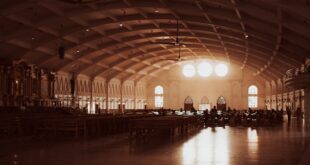It’s too often ignored just how big a part some Conservatives played in the fight to decriminalise homosexual acts in 1967. We have let section 28 overshadow the work of good men and women and the 50th Anniversary of the 67 Act is as good a time as any to remember those who went against their party, their friends and their faith to stand up for what they believed to be right and just.
The Report of the Departmental Committee on Homosexual Offences and Prostitution aka The Wolfenden Report.
The turning point for the LGBT rights movement in the UK was the conclusion of the Wolfenden report that not only recommended that “homosexual behaviour between consenting adults in private should no longer be a criminal offence” but also that“homosexuality cannot legitimately be regarded as a disease, because in many cases it is the only symptom and is compatible with full mental health in other respects.” It wasn’t until a decade later that the proposals made it into law but it marked a turning point in the debate over the legal and medical approach to homosexuality. It shouldn’t be overstated how important the Wolfended report was as it did take 10 years and a number of attempts to decriminalize homosexual acts but nevertheless it was a turning point.
Beginning in February of 1954 Cabinet began discussing the issue of a drastic increase in post war prostitution convictions in England and Wales, and a similarly large increase in the number of convictions for homosexuality related offences such as Sodomy and Gross Indecency. Around the time of the discussion there had been a number of high profile gross indecency convictions, such as those of the wartime code breaking genius and father of modern computing Alan Turing, and Conservative Peer, Lord Montagu, that created appetite for a revision of the law. The Montagu case in particular received a lot of media attention with sensationalist stories of bacchanalian orgies being spread to heighten public interest.
Soliciting Convictions England and Wales: 1938 ~ 3,192 (+222.2) 1952 ~ 10,291
Soliciting Convictions – London: 1938 ~ 2,966 (+228.9%) 1952 ~ 9,756
Sodomy and Bestiality: 1938 ~ 134 (+400%) 1952 ~ 670
Sodomy, Bestiality and Indecent assaults against male persons: 1938 ~ 822 (+275.5%) 1952 ~ 3,087
Gross Indecency: 1938 ~ 320 (+426.9%) 1952 ~ 1,686
The Home Secretary, Sir David Maxwell Fyfe had brought the issue to Cabinet despite personally believing that there was no case ‘for altering the law relating to homosexuality’ and believing ‘that the most profitable line of development is to improve, so far as finances permit, the facilities for the treatment of homosexuals sentenced by the courts.’ A homophobe in the clearest sense of the word he believed the rise in convictions warranted an investigation and he acknowledge that there was a considerable body of opinion that viewed the current laws as outdated. In his original memorandum he did warn an investigation into the increase in conviction would ‘expose us to the danger of receiving embarrassing recommendations for altering the law’

Legendary actor Sir John Gielgud (1904-2000) was arrested and fined for cruising in 1953 but received a standing ovation at his next stage performance. He had a nervous breakdown a few months later and never spoke about the incident.
After further discussion in cabinet over the next three months it was decided than rather than adding to the number of Royal Commissions that were sitting at the time it was more sensible that the matter should be handled by a Departmental Committee. This decision lead to the ‘Departmental Committee on Homosexual Offences and Prostitution’ chaired by John Wolfenden, Later Lord Wolfenden of Westcott, after whom the Committee’s report would become known, as is tradition.
The committee had 15 members with representatives from the Church of England, the Church of Scotland, the legal and medical professions as well as the two major political parties. Two members left the committee before its conclusion and only one of the remaining 13 noted reservations. The Marquess of Lothian and the Conservative MP for Putney, Sir Hugh Linstead were the two conservative politicians sitting on the committee and both supported the reports conclusion.
Approve by Winston Churchill the Committee reported under his successor’s successor, Harold McMillan, who chose not to implement the report’s findings. Cabinet’s opinion was that it ‘would not be practicable for the Government to promote legislation at the present time to change the law relating to homosexual offences.’ This was due to strong and divided opinion and a lack of support in the country for such a proposal. By this time Sir David Maxwell Fyfe had been raised to the Peerage as Viscount Kilmuir and sat in the House of Lords as Lord Chancellor. He lead opposition to legalisation in the House of Lords and once told the bisexual Conservative backbencher, Sir Robert Boothby that he was “not going down in history as the man who made sodomy legal.”
Whilst the General impetus behind the commissioning of the report was to find out the cause of an increase in convictions for homosexual acts and prostitution it remains and important development in the history of legalization. It did not result in any immediate changes to the law, it did not change the official positions of the Conservative government or the later Labour government of Harold Wilson, but it did begin to turn the tide. It is notable that despite being warned that a committee or commission could recommend changes to the law Churchill went ahead with it anyways.
The Wolfended report came about due to the recommendations of a Conservative Home Secretary, was approved by a Conservative Cabinet lead by Winston Churchill and received the approval of its two Conservative members. In this instance the Conservatives as a government failed by not implementing the findings of the report but their inadvertent furthering of the cause of decriminalisation is clear and the support given to the report by the Marquess of Lothian and Sir Hugh Linstead should be applauded.

It later became known that Lord Wolfenden’s son, Jeremy, was gay. He later became a foreign correspondent in Moscow for the Daily Telegraph where he also operated as a British spy.

The Sexual Offences Act 1967
Despite the findings of the Wolfenden Report the vast majority of people viewed homosexuality a mental disease and it wasn’t until 1965 that legislation was brought forward to decriminalize homosexual acts. The Sexual Offences Act 1967 has become known as the ‘Abse Act’ due to the efforts of Labour MP Leo Abse in getting it through the House of Commons, in actual fact this is a misnomer that glosses over the hard work of a number of Conservatives who were more instrumental in getting the legislative ball rolling and pushed harder over a longer period of time.

Arthur Gore, 8th Earl of Arran (1910 – 1983), known as Boofy to his friends.
The Conservative Hereditary Peer, the 8th Earl of Arran introduced the first bill to decriminalise homosexual acts in 1965 as a Private Members Bill and with the support of the Church of England, particularly the Archbishops of Canterbury and York, succeeded in steering the Bill through the House of Lords. It received its 3rd reading on the 28th October 1965 and passed by 96 votes to 31. The Bill fell because it ran out of Parliamentary time as so often happens with Private Members Bills not supported by the Government.
After Lord Arran’s first attempt the gay Conservative MP for Lancaster, Humphrey Berkeley, introduced his own PMB in 1966 that succeeded in passing it’s 2nd reading by 164 votes to 107 in the House of Commons before also falling due to Harold Wilson calling an early general election. Berkeley was not returned to Parliament after loosing his seat following a 6.15% drop in his share of the vote. The Constituency had been held the Conservatives and Unionists since 1929 and would be won back in 1970 and then held until its abolition in 1997. 1966-70 was the only time Labour won the seat and Berkeley blamed his loss on his support for legalisation of homosexual acts.
After the election Lord Arran again introduced his Bill in the House of Lords where it again received the support of the Church and was passed by 78 votes to 60 on the 16th of June. Thereafter it was picked up in the House of Commons through a 10 minute rule motion by the Labour MP, Leo Abse who was able to secure the support of Home Secretary Roy Jenkins who ensured the Bill was afforded Parliamentary time. It was passed by 101 votes to 16 after a late night debate and received Royal Assent on the 27th July. The most contentious votes were held before 3rd reading and the Bill was lucky to pass, preailing through the efforts of Abse and Jenkins. Throughout the process most opposition came from the Conservative benches but there were come noticeable exceptions. Amongst the Conservatives who supported the Bill were Margaret Thatcher and Enoch Powell.
Whilst the Act had many many many flaws and in subsequent years far more gay men were arrested on charges of indecency and but itself it didn’t change public perception of homosexuality it still marks the advent of a civilized legislative approach to homosexuality in the UK.

Alan Duncan was the first Conservative MP to come out in 2002.
Conclusion
Arran and Berkley were the first in a long line of Conservative reformers who fought for LGBT rights and endeavored to modernise the party’s position on LGBT issues, a metamorposis both main parties have gone thorough. Along the way we saw John Major end the ban on diplomats being openly gay in 1991 and Edwina Currie lead a major rebellion against her own party in 1994 to equalise the age of consent at 16. This process culminated in the Conservative lead coalition government of David Cameron introducing and passing the Same Sex Marriage Act 2013.
Far too often the role of Conservatives in decriminalising homosexuality is glossed over with platitudes about general Conservative opposition to decrminalisation but without men like Humphrey Berkeley and Lord Arran initiating the legislative discussion decriminalisation could have taken an awful lot longer to achieve. History is never black and white and from time to time we should remember that and remember all those who broke the mould for something they believed in, especially when they play as important a role as they do here.
Intresting Facts:
~ Of the 45 openly LGBT MPs elected in 2017, 19 are Conservatives, 7 are Scottish Nationalists and 19 are Labour MPs.
~ 2 members of the cabinet identify as LGBT.
~ The Conservative MP Daniel Kawczynski is currently the only bisexual MP and is one of just two MPs to ever be openly bisexual, the other being Liberal Democrat Simon Hughes who lost his seat in 2015.
~ The Conservative MP Margot James was the first female MP to be ‘out’ before being elected.
Further Reading:
Cabinet Memorandum 17th February 1954
http://filestore.nationalarchives.gov.uk/pdfs/small/cab-129-66-c-54-60-10.pdf
Cabinet Paper Thursday 15th April 1954 pg 6-9
http://filestore.nationalarchives.gov.uk/pdfs/small/cab-128-27-cc-54-29-29.pdf
Cabinet Memorandum 24th October 1966
http://filestore.nationalarchives.gov.uk/pdfs/small/cab-129-127-c-144.pdf
Cabinet Papers Thursday 27th October 1966 Pg 4-5
http://filestore.nationalarchives.gov.uk/pdfs/small/cab-128-41-cc-66-52-52.pdf
This post was originally published by the author on his personal blog: http://themiletian.com/2017/07/18/1967-the-conservative-record/
 Daily Globe British Values, Global Perspective
Daily Globe British Values, Global Perspective



